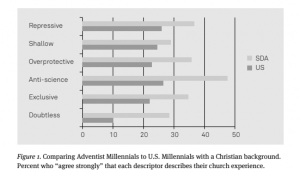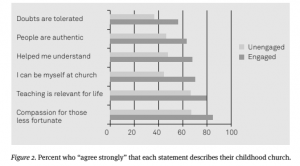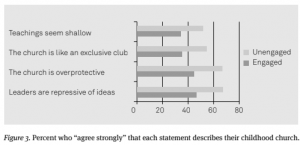
Anaelys Trochez
When I think about the Seventh-day Adventist church, one of the most important people that comes to mind is my Cuban grandmother, Nancy Mestre. She inspired me to be a better Christian.
Every morning, mi Abuelita (Spanish for “my grandmother”) would always pray for anyone who crossed her path in life. I learned most of my beliefs and values from her.
But there were times I wish I didn’t listen. Abuelita and I had different views within the church. I was struggling to see God as a loving being. She had legalistic views and I did not agree. As a result, it shaped my views (both negatively and positively) about being a part of a church.
Here’s a challenge: Think about the people you associate with in church. Are the majority of your friends outside or within your generation?
I asked that question of myself and realized that the majority of the people I spend time with at church are youth and young adult members of the church. I only spend time with the older generations when I have to — like in Sabbath morning church services and church board meetings.
I realized that I am not intentional about speaking with someone of a different age.
Why? Because of past negative conversations with older church members, their actions (or lack of), and personal stereotypes.
In the Journal of Applied Christian Leadership, Clint Jenkins and A. Allan Martin published a dialogue called Engaging Adventist Millennials: A Church Embracing Relationships in the spring of 2014.
In this article, they reviewed a study completed in 2013 by the Barna Group to investigate how congregations can be more effective in maintaining engagement with those born between 1980 and 2000.
They surveyed Millennials who were (or had been) part of an Adventist congregation to understand their collective experiences and attitudes. The study details six perceptual grievances that Millennials tend to harbor against “the church” as a cultural institution. These grievances hold that the church is (1) intolerant of doubt, (2) elitist in its relationships, (3) anti-science in its beliefs, (4) overprotective of its members, (5) shallow in its teachings and (6) repressive of differences.


Jenkins and Martin noticed that maintaining engagement among young adults is through positive experiences and relationships with older Adventist members and church leadership. They realized that intergenerational relationships are vital and can be the reason Millennials stay or leave the church.

I found this to be true. A close friend of mine does not attend church because church members disliked her bold choice of hair color. Another young church member feels discouraged about planning programs to which only a few attend and some don’t show up at all.
I remember attending a church board meeting where older church members were reluctant to participate in youth group activities because they felt out of touch with our generation.
According to the study, establishing supportive intergenerational relationships, expressing forgiveness and acceptance and sharing experiences might be ways to build a bridge between the generational gap within the church.

Mi Abuelita, my beloved grandmother, passed away Jan 6th of this year, just four days after my 21st birthday. As I reflect on our relationship, there were many times that I let our differences be an excuse for us not getting along.
I wish I understood sooner that we were both broken individuals trying to be a Christlike. I miss her smile and most of all, I miss her prayers for me. She would always pray for my studies and education. I am where I am because of her early morning prayers.
I challenge young people (myself included) to establish a friendship with someone outside their generational group. Talk, pray and support them whatever way you can.